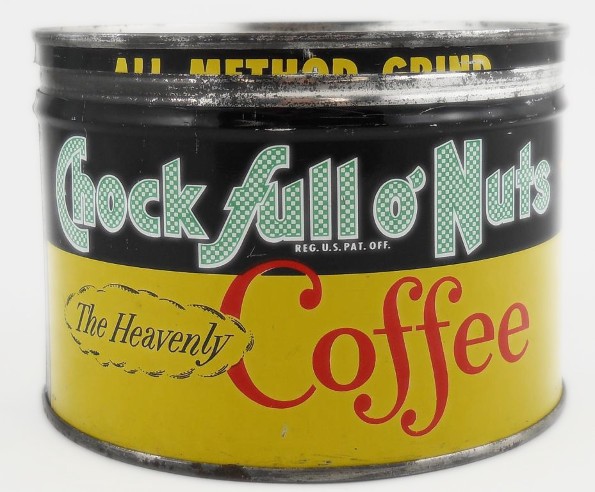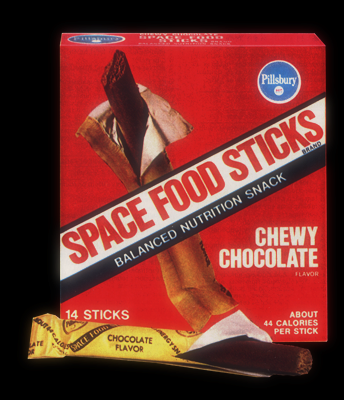The space explored by America
A concise summary of the space race and how we won it.
By Dr. D. Dalton Rump, fifth degree phD
in Astropsychics from Belmoine Univeristy.
America has always been really great at
technical science and our race into space proves it. There were many important sciences
developed on the days of the space launches, all the way from the 1950s to the 1990s when we
gave up space as fully conquered. We will discuss these breathtaking achievements now.
One very important advancement was the compressed air available to the astronauts for breathing. This was conveyed up in the space ship in vacuum sealed coffee cans, after the coffee had been removed of course. There were occasional accidents in which astronauts choked on ground coffee from cans that had not been emptied out properly, or at all. This was called "becoming over-caffeinated".
One very important advancement was the compressed air available to the astronauts for breathing. This was conveyed up in the space ship in vacuum sealed coffee cans, after the coffee had been removed of course. There were occasional accidents in which astronauts choked on ground coffee from cans that had not been emptied out properly, or at all. This was called "becoming over-caffeinated".

Example air canister before filling. The coffee removed from
these sure fueled a lot of space thinking.
The opposite problem was explosion by decompression, called "complosive deprosession" by scientists. This could happen to any astronaut unlucky enough to be pranked by his co-travelers and placed in the airlock while he slept. If the other astronauts didn't like the guy in the airlock, they would swivel the airlock's air cocks and out the astronaut would go to become one with the cosmos. At that point, they would also explode into a fine paste. If severe hunger later afflicted the surviving astronauts, they could "space scrape" the remains of former annoying astronauts off of the ship and make a fine tasting gruel.
All astronauts are male of course, since the spacesuit was designed for people with penises. Do not send me angry letters; penis is the appropriate word for referring to a man's genitalia. This fact is so fundamental to space travel that women have long designed their own spaceships and suits in preparation for space travel, but they know that if men keep leaving the planet for space, soon women will have the planet to themselves and this has halted their scientific efforts mostly. It is important that not every man go to space in trying to fulfill his patriotic duty; otherwise the planet would become devoid of our penises and our brains, which share much of the same very importent functionality.
A lot of computation and calculation and figuring went into the excellent American space program. It was some of our greatest and best thought at the time. Unfortunately there were many errors too, and these needed to be corrected a lot on the day of the space launch. Vectors and thrusts and other scientific concepts might not have been computed correctly by lazy pre-launch scientists, and the political leaders often had to step in and correct their numbers on whiteboards or blackboards, depending on the race of the scientists. This was called "just in time space exploration" and is a technique still used today in many software compilers in computers.
Further, many of the computers we have today would not have been invented without the space race. This is because going any kind of distance, in any medium (such as water or space) requires very many, nearly infinite numbers of precise calculations. Today we do this with a GPS device, but back then they had only hand calculators and a few really smart people that could add quickly enough. This just wasn't good enough.
For one thing, smart people like to argue, and when decisions have to be made really quickly in space, we need decisiveness. The kind of decisiveness that can see three alternatives, and come up with a better correct version of reality to explain what should be done next in astrogation. That's how our amazing astronauts of Pollo 19 were able to find the chicken nebula in heaven and known the way back to earth without totally evaporating in space.
Also the space race gave us many new terms for our American language. For example, nobody knew what space food sticks were before we traveled to the moon and the sun. Now this delicious breakfast treat is enjoyed by all technical people along with their eggs and orange juice. It's part of a full flavored space breakfast!

An important development in American cuisine. Thank you,
space.
Science is a journey of continual discovery and many new rules of motion and collision had to be determined before we could ever jump into space. Early pioneers used many types of equipment to get into space, from trampoline to trebuchet to cannon, and these were largely failures as far as we know. Initially there was a lot of positive thought that many early travelers actually made it into space, since they were never heard from again after their launches. This was especially true for those using cannon to escape earth's pull, which caused cannon-fired space travel to continue developing for quite a long time. Eventually people decided that maybe space travelers should come back and tell us what they found. This inspired the development of ROCKETS! But at least all that development work in cannons could be put to use during wartime, such as the Napoleonic age that prospered after the first early space flights.
The real trick which we figured out was how to get back down to Earth. The answer was simple, stupid -- gravity. Things thrown up tend to fall back down (unless you throw them really hard, see earlier point about cannon-fired space explorers). The only way you can counteract gravity is with thrust, so we rapidly figured out how to thrust just the right way to fall off the planet. It's important not to fall too far, because at some point the conservation of gravity comes into play, which means you do not get any more of it. At this point, you may become a satellite or a meteor because you are no longer tethered to earth's gravity effectively enough.
Rockets are the best possible way to deploy thrusting for getting into space and always have been, even before we knew how to make them. A little known fact: since there's no air in space, you cannot hear rocket thrusters firing, which one could scarcely know from all our movies about space flight. Space movies rightly favor the pleasure of the audience in hearing loud noises over stark realism. Luckily, the ultra-quiet vacuum of space also means you cannot hear annoying astronauts scream when you send them out the airlock, which makes the whole process a lot less stressful.
Whew, those last couple of paragraphs were highly technical. Let's bring the focus back to things that really matter: how we feel about space. Space is just cool and it was begging us to explore it. Almost like the undersides of dresses beg to be lifted up, assuming the lifter is well endowed enough, with cash, to pay off any lawsuits from lame women who don't like their dresses lifted up. So, we brave men finally said, let's lift that dress off of space and go explore under there, and damn the lawsuits from God. If he didn't want us exploring space's knickers, he shouldn't have put it all around us. It's a biological imperative after all.
So here we were feeling all cool about starting to explore space, when the Russians saw that and were like "we want that too!". They inhumanely started putting dogs up into space, just to really piss us off. We humanely tossed monkeys up into space instead, because who gives a damn about them, but dogs are our best friends.
This space exploration by animals lasted until humans got jealous and wanted to see it for ourselves. Also we had killed all those space animals rather than figuring out how to get them back, so we could not hear their own accounts about space. This started development on even more new technologies, such as making spacesuits that were not equipped with kill switches. We want to be humane to humans after all!
Then we really kicked those Russkies but good. They were still all pumped about sending dogs and robots up into space, but we got real American men into space instead. That showed them. Then they started up their propaganda machines trying to claim they got a person up there first. Ha, if that's true, where are the pictures? We have much better pictures of our best people who got into space first, such as Buzz Armstrong and Neil Diamond.
But after getting into space first, we thought, what would really show those stuffy communists the true glory and power of the capitalist system. And some clever people were like, hey, if we went up and stomped around on the Moon, that would really torque those Russians something fierce. They could look up there and know we were stealing all their cosmic stores of green cheese, and if they ever made it up there, there wouldn't be any left. And just knowing that we got up there and put our boots all over the moon (which were henceforth called "moon boots") would mean we had secured our place in history once and for all, and could finally stop trying.
So we got right to that task of landing on the moon, and, after a lot of whiny complaints about wanting to know what it's like, even got astronauts back again to tell the tale. And tell that tale we did, even to this day. And we have the pictures to prove it. QED.
Signed,
D. Dalton Rump,
Excecrent ApstroPhystix Docter
a note from the curator...
The author, Dr. D. Dalton Rump,
is a well known
creator of unexpectedly popular
faux news articles
on a variety of topics that he
is almost definitely
proximally qualified to talk
about. He certainly
believes he knows a lot about a
lot! Let's give the
little guy a hand for his
apparent precociousness!
#space #satire #coffee #monkeys
#epistemology
(originally published on
medium.com on December 8 2016)